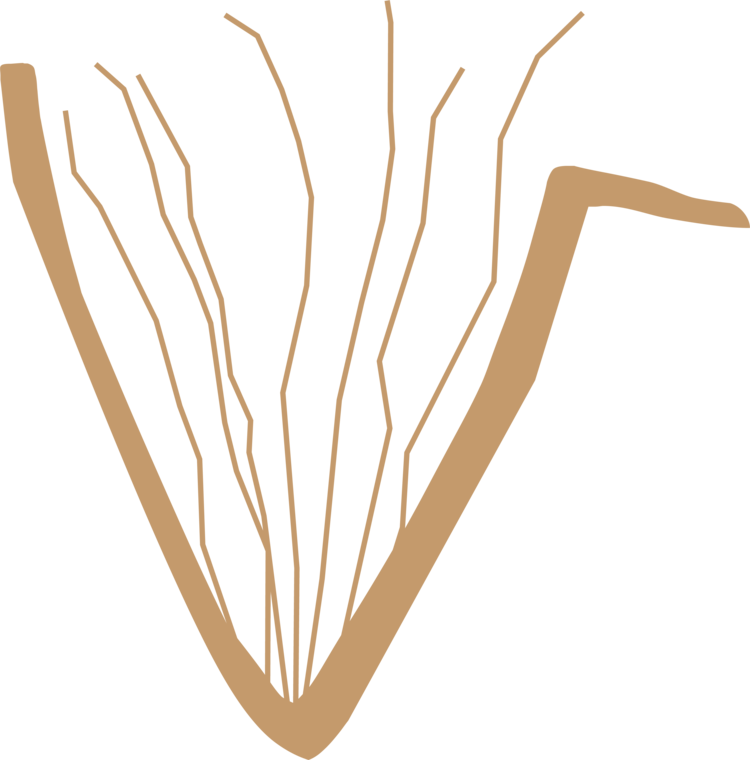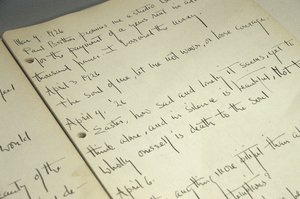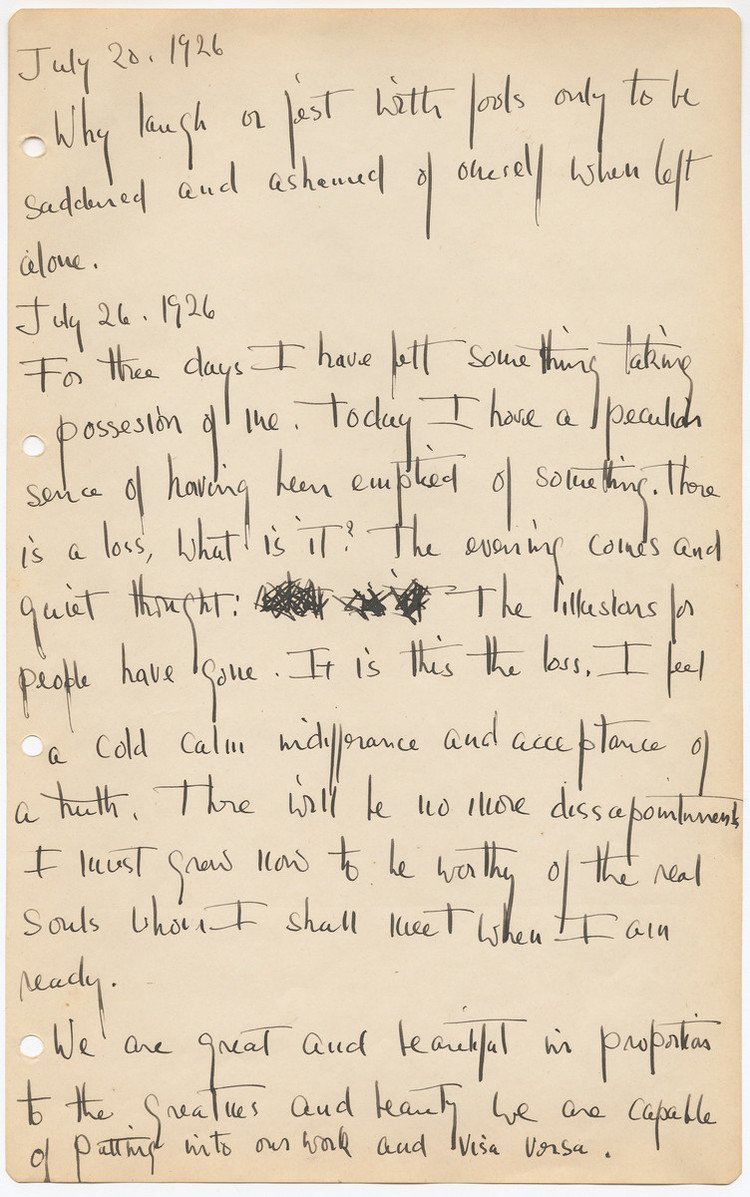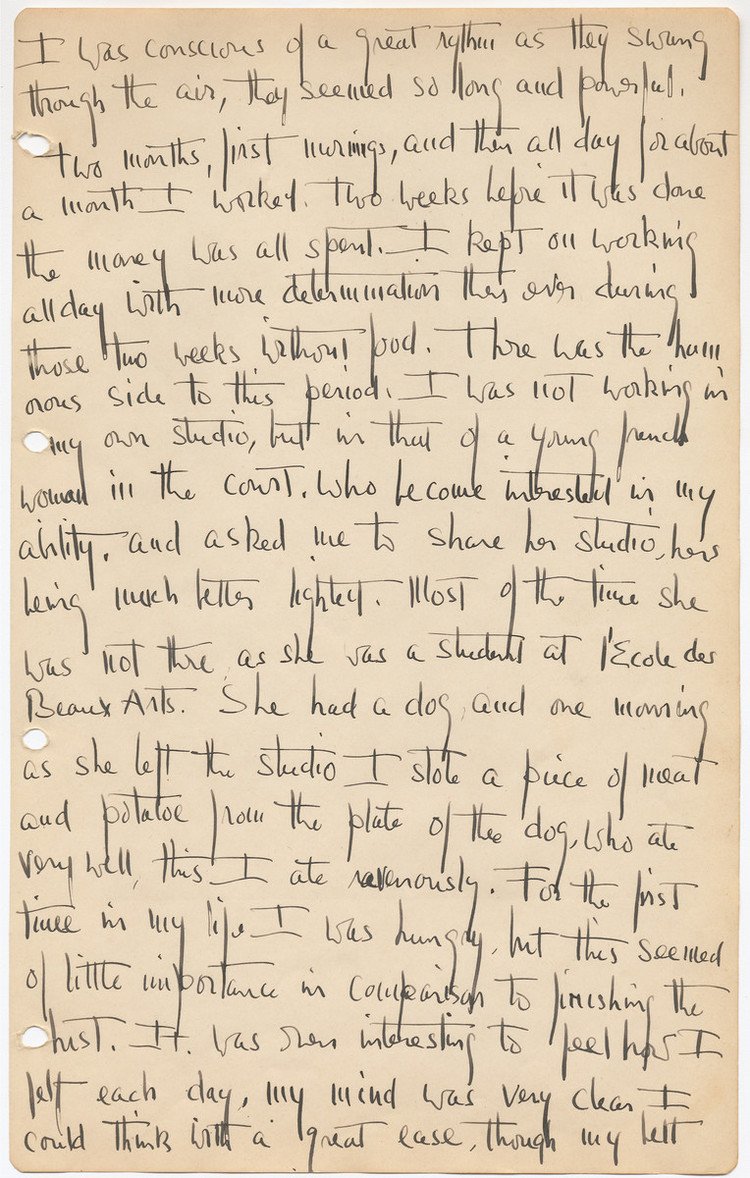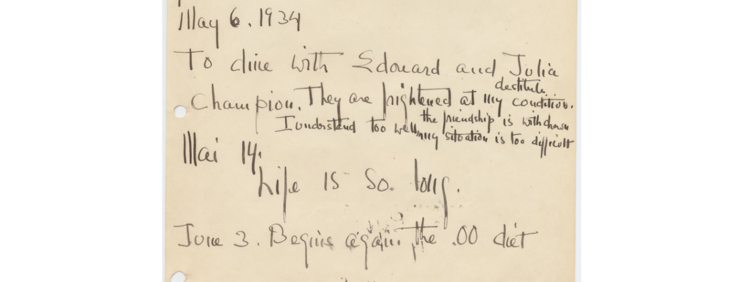Nancy Elizabeth Prophet, 2: Pages from her Journal
A portion of Prophet’s journal. Note how brief her entries are. Image by Lynne Yamamoto
June 6, 2023— Peace. I’m updating the VGB website and wanted to put this note in this particular entry. First, the following pages from Nancy Elizabeth Prophet’s diary were sourced from Brown University’s digital collections. While I’m grateful we have access to this diary online, since originally writing this post in 2016 my feelings against Black women’s journals being institutionalized has only intensified. These journals are fragments of our history and here it is we cannot access them apart from the colonizer’s classist academic structures and academic bureaucracy interrogating my motive in reviewing texts they’ve stolen. Withholding someone’s history even in the smallest form (ie a diary) is a form of violence. A violence that enables white people of means to access our mothers’ private writings and then carry on in their culture of evil silence
That being said, I realize I never wrote an official post for this entry of pages from Prophet’s diary. Aside from history and ancestral reconnection, another goal of VGB’s “Where are OUR Journals?” series is to present the different journaling styles various teastained women have employed through the ages. Some have journaled faithfully whilst others’ completed journals are comprised of jots here and there spaced months and sometimes years apart. Nancy Elizabeth Prophet’s journaling style fits the latter case. With her finished journal we recognize that a journal is no less compelling, no less resonant when comprised of sparsely-updated entries of various lengths. If you’ve ever been through a struggle season you understand Prophet’s plight: to document in the midst of starvation or to perhaps rock onesself to sleep in the pangs of hunger? Write in your journal or rub your numb hands together in an unheated Parisian apartment? Like many of us have, Nancy witnessed through experience the violence of poverty and capitalism as both a working student and starving artist in the same lifetime. We can read in the journal entries that she never wrote the burden of invented poverty that maintains class structure and dehumanizes us— especially Black people. Societal structures around Prophet rendered her experience merciless. In her barely-filled journal we see the unnaturalness and morbidness of her socioeconomic navigations conflated into a life experience she was often too weak, cold, or hungry to preserve in her journal. Recalling the sociopolitically premeditated/intentional aspect of poverty, lack, and meager seasons is a harsh reality in reading Prophet’s diary— but her witness should encourage the entries we preserve in remembering or experiencing similar dire straits. No matter how intense and ugly, we who have been through unimaginable things have not been through unwritable things. And with the witness Prophet has preserved in the few pages of her diary, kept from 1922-34, we have enough to write an indictment of our own against a system that necessitates have-nots in order for resources to be diverted to a precious few.
“July 20, 1926–Why laugh or jest with fools only to be saddened and ashamed when left alone.
July 26, 1926–For three days I have felt something take possession of me. Today I have a peculiar sense of having been emptied of something. There is a loss, what is it? The evening comes and quiet thought: The illusions for people have gone. It is this the loss. I feel a cold calm indifference and acceptance of a truth. There will be no more disappointments I must grow now to be worthy of the real souls whom I shall meet when I am ready.”
We are great and beautiful in proportion to the greatness and beauty we are capable of putting into our work and vice versa.”
“I was conscious of a great rhythm as [my arms] swung through the air, they seemed so long and powerful. Two months, first mornings and then all day I worked. Two weeks before it was done the money was all spent. I kept on working all day with more determination than ever than ever during those two weeks without food…I was not working in my own studio but in that of a young French woman in the court, who became interested in my ability and asked me to share her studio, hers being much better lighted. Most of the time she was not there as she was a student at l’Ecole des Beaux Arts. She had a dog and one morning as she left the studio I took a piece of meat and a potato from the plate of the dog, who ate very well. This I ate ravenously. For the first time in my life I was hungry, but this seemed of little importance in comparison to finishing the bust. It was _____(?) interesting to feel how I felt each day, my mind was very clear I could think with a great ease…”
(Page 5 from Nancy Elizabeth Prophet’s Paris Journal, via Brown University)
“Dec. 30, 1926– To——have been a woman——once.”
“August 13, ‘29– Let yourself flow out easily.”
“July 20, 1926–Why laugh or jest with fools only to be saddened and ashamed when left alone.
July 26, 1926–For three days I have felt something take possession of me. Today I have a peculiar sense of having been emptied of something. There is a loss, what is it? The evening comes and quiet thought: The illusions for people have gone. It is this the loss. I feel a cold calm indifference and acceptance of a truth. There will be no more disappointments I must grow now to be worthy of the real souls whom I shall meet when I am ready.”
We are great and beautiful in proportion to the greatness and beauty we are capable of putting into our work and vice versa.”
“I was conscious of a great rhythm as [my arms] swung through the air, they seemed so long and powerful. Two months, first mornings and then all day I worked. Two weeks before it was done the money was all spent. I kept on working all day with more determination than ever than ever during those two weeks without food…I was not working in my own studio but in that of a young French woman in the court, who became interested in my ability and asked me to share her studio, hers being much better lighted. Most of the time she was not there as she was a student at l’Ecole des Beaux Arts. She had a dog and one morning as she left the studio I took a piece of meat and a potato from the plate of the dog, who ate very well. This I ate ravenously. For the first time in my life I was hungry, but this seemed of little importance in comparison to finishing the bust. It was _____(?) interesting to feel how I felt each day, my mind was very clear I could think with a great ease…”
(Page 5 from Nancy Elizabeth Prophet’s Paris Journal, via Brown University)
“Dec. 30, 1926– To——have been a woman——once.”
“August 13, ‘29– Let yourself flow out easily.”
“May 6, 1934– To dine with Edward and Julia Champion. They are frightened at my condition. I understand too well my situation is too difficult.
Mai 14– Life is so. long.
June 3– Begins again the .00 diet.”
From page 45 of Nancy Elizabeth Prophet’s journal.
(via Brown University)
Where are OUR Journals? is an ongoing project unearthing
the writings of teastained women's journals.
